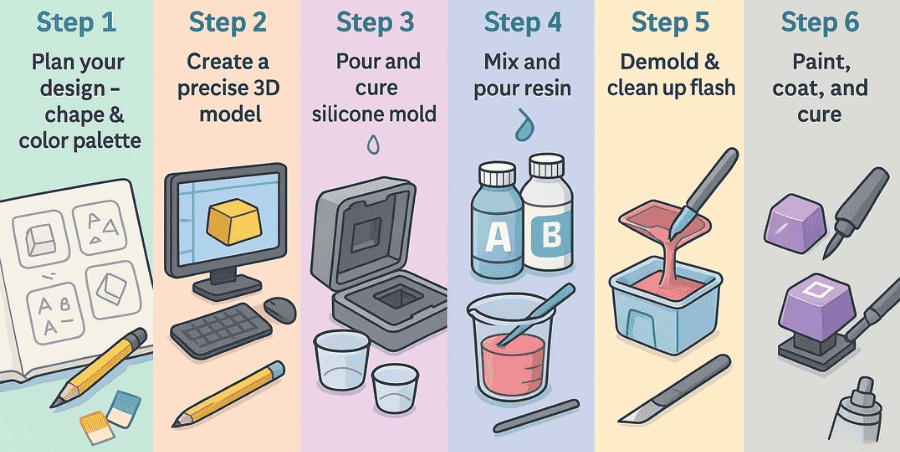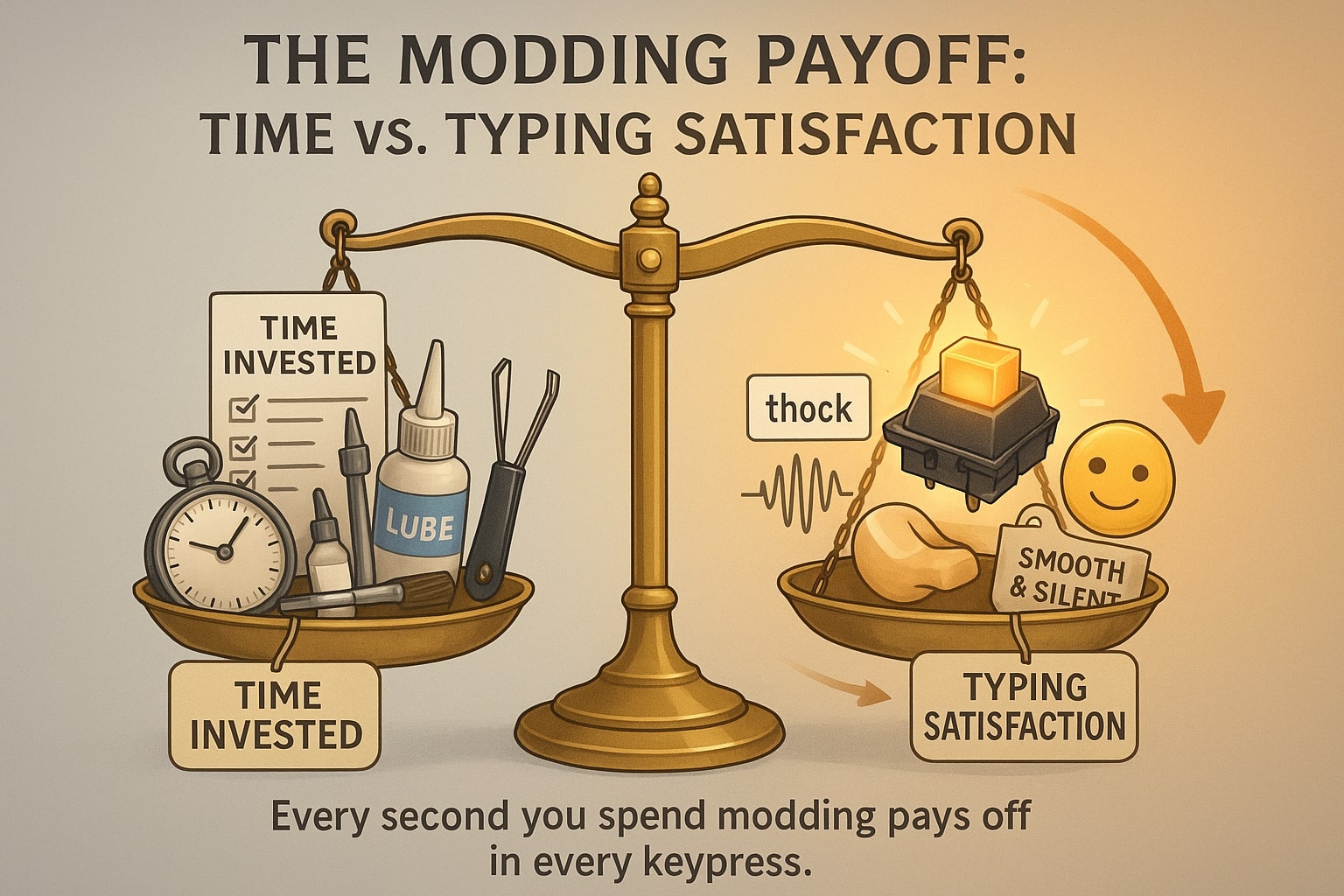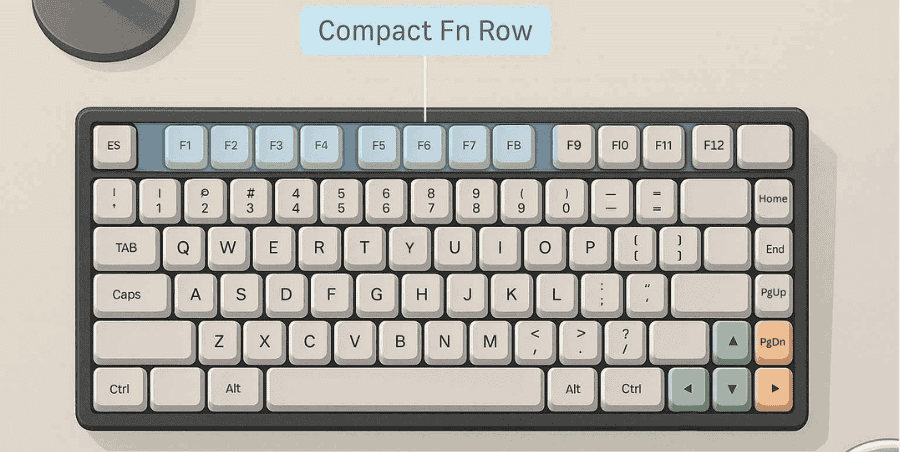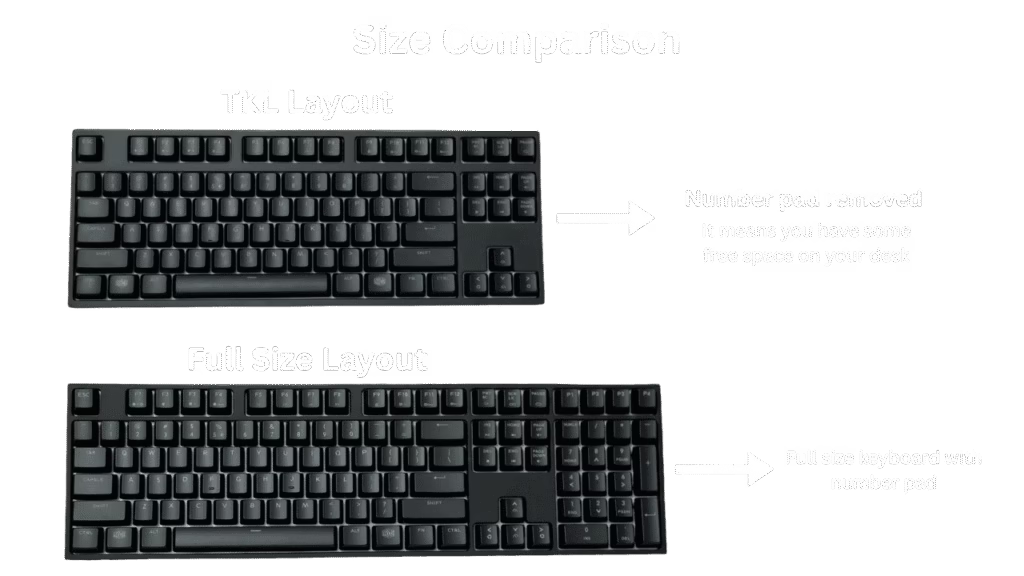The “thock” sound is one of the most popular sounds people associate with mechanical keyboards. It’s a deeper, fuller sound that many enthusiasts enjoy. Some people specifically chase that “thocky” sound when customizing their keyboard because it feels more premium and satisfying.
That doesn’t mean keyboards that sound different are bad. Many users also love the “clack” sound, which is higher-pitched, sharp, and crisp. Both sounds thock and clack are just two different sound profiles that keyboards can have.
The sound you prefer really comes down to personal taste. Some enjoy the smooth, deep thock for typing comfort, while others like the lively clack that feels snappy and energetic. In the end, your keyboard sound profile is part of what makes your setup feel personal.
How to get a thocky keyboard
If you want a thocky keyboard, you’ll need to optimize several components that shape the sound.
The first factor is the switches. Switch choice makes a huge difference, and some switches are naturally deeper-sounding than others.
The second factor is the keycaps. Thickness matters a lot here. For example, thicker PBT keycaps usually produce a deeper and fuller thock compared to thin ABS ones.
The third factor is the case and plate materials. Softer, lower-frequency materials like polycarbonate tend to create that deep thock, while metals such as aluminum or steel often produce sharper, high-pitched clacks.
Finally, there are dampening materials. Adding foam or silicone inside the keyboard helps reduce hollow sounds, muffle harsh tones, and deepen the overall sound profile.
When you combine all these switches, keycaps, case materials, and dampening you’ll get much closer to that satisfying thock many keyboard enthusiasts chase. It’s not just one change, but how all the parts work together that creates the final sound.
Conclusion
Thock is a very common sound in mechanical keyboards. If you experiment with different switches on your own keyboard, you’ll get a first-hand feel for what “thock” really sounds like. Testing it yourself is much better than just watching videos because every setup sounds a little different depending on the switches, keycaps, and even your desk.
If you’re curious, try swapping between a few different switches or using thicker keycaps you’ll notice how the sound changes. This hands-on experience will help you understand what makes a keyboard thocky and whether it’s the kind of sound you actually enjoy.
FAQ’s
What is creamy vs thocky?
It’s all about preference. Some people enjoy the creamy, smooth sound of a mechanical keyboard, while others prefer the deep ‘thocky’ sound. The switch type, keycaps, and even the case material all play a role in shaping these sounds.
Which color switch is thocky?
There isn’t a specific switch made just for the thocky sound. It mostly depends on the materials used in the keyboard, the case design, and especially the keycaps. With the right combination, almost any switch can sound thocky.
Which plate for thocky sound?
One material known for producing the thocky sound is POM. Keycaps made from POM have a deeper, fuller tone that many enthusiasts love. They also feel smooth to type on and are quite durable.
Is Cherry Profile thocky?
Cherry profile keycaps are not very thocky. They usually produce a lower, softer sound. On the other hand, SA and MT3 profiles are known for their deeper, more distinctive thocky sound because of their taller shape and thicker walls.




